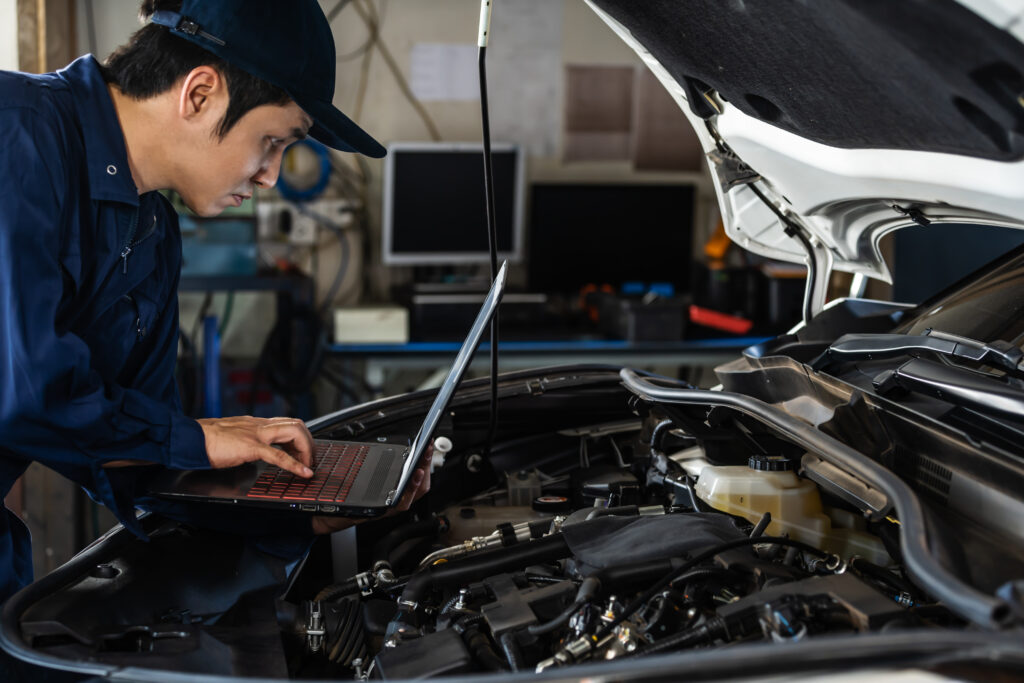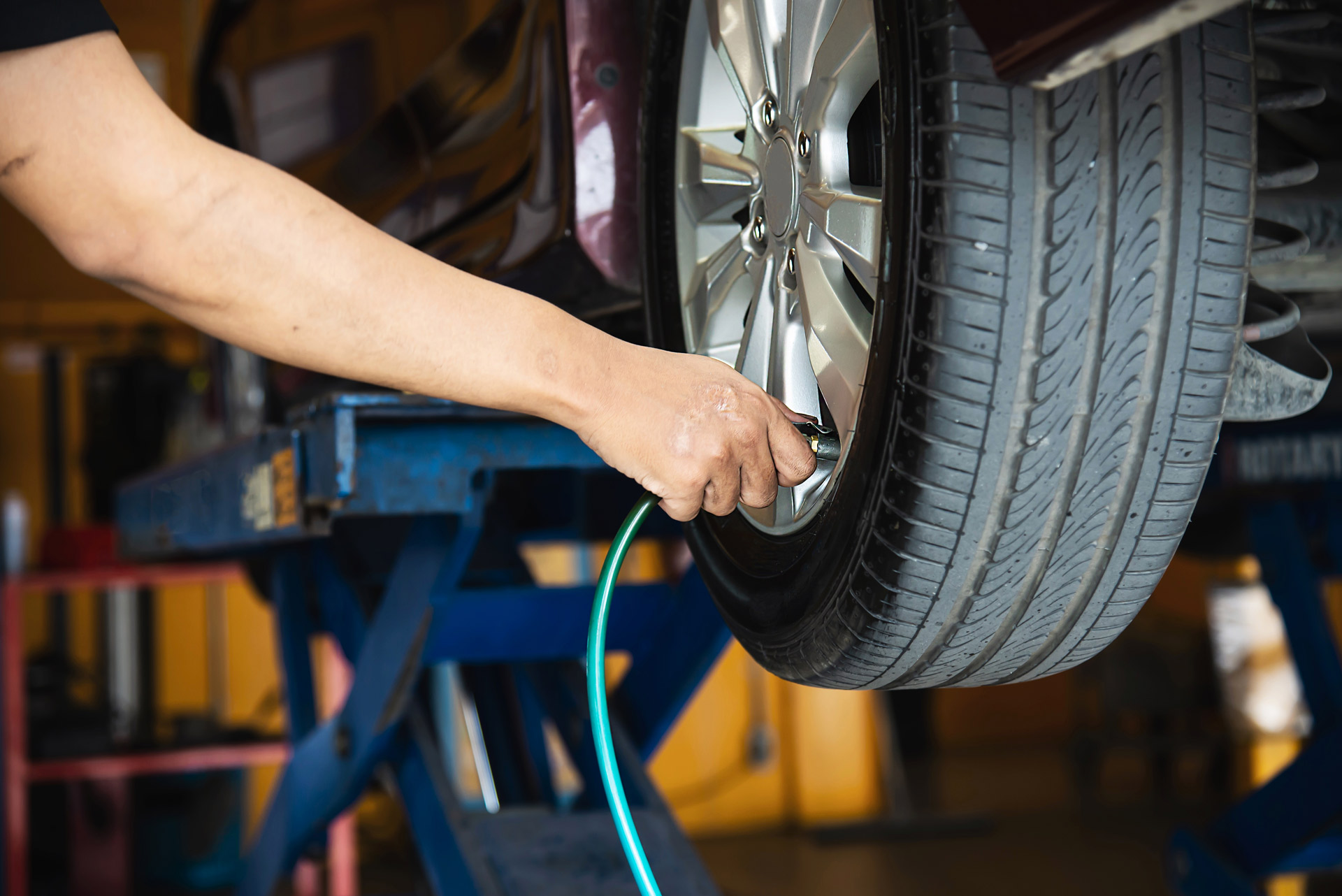

Setting yourself apart as an experienced auto mechanic can prove challenging, but taking your skills on the road can open numerous growth opportunities. The comprehensive guide below includes step-by-step instructions on launching a mobile mechanic business. Mobile mechanics can tap into Direct-Hit Mobile as a powerful resource for vehicle-specific data to streamline repairs, cultivate a solid reputation, and actively encourage repeat business.
1. Develop Your Business Plan
The most successful businesses—mobile or brick-and-mortar—begin with a detailed and well-researched business plan. In this written document, business owners establish some of the key parameters influencing their goals and, ultimately, the business’ longevity. A professional business plan is vital to obtaining financing—but more on that in a moment.
One of the first steps in starting a mobile mechanic’s shop is settling on a name. Next, define your objectives and goals, which you can blend into your mission statement as a way of communicating your business ethic to potential customers. A business plan also includes key points like your target market, competitive analysis, and much more.
Marketing and scaling your mobile mechanic business requires knowing your target audience inside and out. However, it’s the milestones you create for yourself—those short and long-term goals—that continue to guide your efforts. These vital markers of success are tangible achievements you can use to reach the next set of goals.
2. Source Business Financing
After creating your business plan, it’s time to determine how you’ll fund your new venture. It’s best to determine how much you must work before moving on to the next steps. Most financing for a mobile mechanic comes from one or more of the following sources:
As you consider which sources to tap into for funding, consider the common overhead expenses you might need to cover as a mobile mechanic. While they’re often less than those necessary for a brick-and-mortar location, technicians must still overcome them to break even and make a profit. Here are a few overhead costs mobile mechanics may encounter:
Overhead costs will vary depending on your location, service vehicle, offered services, the corresponding required tools, etc. Use the market research you performed as part of your business plan to inform you about these costs.
3. Obtain the Appropriate Licensing
The licensing and permits required to open a mobile mechanic business vary depending on your state. Consider obtaining a certificate from the National Institute for Automotive Service Excellence (ASE) to increase your appeal. Vehicle manufacturer certifications can also help you stand out from your competition.
California
Mobile mechanics located in California must obtain an Automotive Repair Dealer (ARD) from the Bureau of Automotive Repair (BAR). Eligibility requirements include being at least 18 years old, having a valid driver’s license, and possessing at least four years of automotive repair experience. The application requires submitting your Employer Identification Number (EIN), company number (assigned by the California Secretary of State), seller’s permit, and county/city business license.
Florida
Florida mobile mechanics must register with the Florida Department of Agriculture and Consumer Services (FDACS). The FDACS requires invoices to include specific information regarding services rendered, along with the date of service, mileage in, and any warranties offered. Estimates must also comply with specific requirements.
Texas
Registering your business name with the Texas Secretary of State is the first step in starting a mobile mechanic company in the Lone Star State. Mechanics will also obtain a business license from the Secretary of State, unless established as a sole proprietorship. Mobile mechanics must also file taxes with the Texas Comptroller of Public Accounts.
4. Acquire Insurance
Licensing ensures you’re compliant with federal and state business legalities, but insurance helps protect you, your assets, your customers, and their vehicles. The cost of insurance varies depending on what types you acquire, in addition to your age, claims history, policy limits, your service vehicle, and your work-related equipment. Below are common types of insurance you should consider as a mobile mechanic:
Mobile technicians may also want to obtain insurance coverage for their tools and equipment. With repairs done out in the open, anyone can walk up and take whatever they want. Cyber insurance can also protect people from bad actors who instigate cyberattacks and data breaches.
5. Purchase and Outfit Your Service Vehicle
Whether you think of it as an office on wheels or an advertisement for your services, the vehicle you choose to work out of as a mobile mechanic matter. Popular options include a truck and trailer or a utility van because they offer the cargo space and flexibility to tackle almost any job you encounter. Below are additional factors worth considering as you kit out your mobile automotive technician rig:
If you plan on expanding your service radius to the point where you’re traveling an hour or two to reach clients, a fuel-efficient vehicle can help minimize fuel costs and reduce your overhead. However, a full payload of heavy tools can still reduce the fuel economy somewhat. Accounting for this overhead by implementing a trip charge can also help offset fueling costs.
6. Buy Tools and Equipment
The specific tools you need to complete auto diagnostics and repairs depend on what services you plan to offer (more on this in an upcoming section). However, a basic set of tools can help get you started without breaking the bank on specialty tools you may use once or twice a year. The list below is hardly comprehensive, but it’s a viable starting point for a mobile mechanic offering common services:
As a technician or enthusiast with prior experience, you might not need to invest as much into tooling as the next mechanic. However, purchasing tools you can rely on can significantly impact your ability to complete repairs and make your customers happy. Never underestimate dependability and reliability when it comes to automotive tools.
7. Integrate Shop Management and Mobile Diagnostic Repair Software
Not all automotive tools are tangible, as is the case with shop management and diagnostic software, which are vital to keeping your mobile mechanic business running smoothly. Identifix Shop Manager enables technicians to create quick estimates and invoices, simplify scheduling and customer communication, manage inventory, and ultimately increase profitability. In addition, Identifix Direct-Hit® with Mobile offers mobile mechanics a wealth of diagnostic and repair information at their fingertips. This makes it easy to work under the hood wherever you are.
A comprehensive and full-service diagnostic solution, Identifix Direct-Hit® connects auto technicians with over 3 million confirmed fixes, expanded OEM manual coverage, along with OE, MOTOR and Bosch wiring diagrams. Also get access to over 350 video technician training modules, and live help from the ASE Master Tech Hotline. With Direct-Hit, you can identify the right fix faster from anywhere at any time.
8. Determine What Services You’ll Offer
Striking a lucrative balance between offering numerous automotive services and a select few requires knowledge of what’s in demand in the area. Service listings that cover everything from extensive engine repairs to a simple brake service can overextend your resources. Specializing in particular services instead can help you build a solid reputation sooner.
Basic services common among mobile mechanics include oil changes, air filter changes, brake pad and rotor replacements, and other routine maintenance. Emergency roadside assistance and advanced diagnostics can also help you develop a customer base. Whichever services you decide to offer, stay within your wheelhouse to simplify building a solid foundation you can build on.
9. Establish Competitive Pricing
As is the case with auto repair shops, determining an hourly rate and fixed rates for common services can help create transparent pricing for your customers. Most mechanics nationwide charge anywhere from $75 to $150 an hour, but fixed costs vary. Factors that can influence pricing include the following:
Develop a pricing strategy that best suits the factors above but is clear to the average customer. Urgency and commute time can also impact pricing.
10. Promote Your New Business
Building a rapport with clients, especially first-time customers, should be at the top of your list when establishing your mobile mechanic’s business. Word-of-mouth marketing is still the most powerful tool any business has in its advertising arsenal. Going above and beyond to offer superior customer service can prove more rewarding than paying for advertising if you make a positively memorable impression on the right community members.
Reputation management also directly influences how potential customers see your mobile mechanic business. For example, what image do you portray on social media and your website? Customer reviews on Yelp and the Better Business Bureau can also impact your company’s potential for growth.
11. Plan for Scalability and Growth
Although it might take time to settle into your new career as a mobile mechanic, planning for growth can help increase your profitability. For example, offering warranties can help you stand out from the competition. However, such a service requires some forethought and development before you can realistically use it to attract potential customers.
Another consideration is the point at which you can or want to hire a secondary technician and even purchase another service vehicle. Optimizing your current service offerings in the immediate area might lead you to hire a technician located in the next county or city to expand your reach. Establishing key relationships with local businesses and customer bases can also help your mobile mechanic’s business thrive.
Diagnostics and Repair Solutions Tailored to Mobile Mechanics
When you open a business, it pays to invest in software solutions that meet your needs and grow with you. Direct-Hit Mobile provides an on-the-go solution that connects you to the vehicle-specific repair data you need to complete jobs quickly and impress your customers. Contact us to learn more about how Identifix provides tailored diagnostic and repair solutions to address your mobile needs.
Did you like this article? Find more great content at identifx.com/blogs and solera.com/blog.

Identifix is the leading provider of automotive repair shop solutions and sevices designed to improve shop profitability and repair outcomes.
"*" indicates required fields